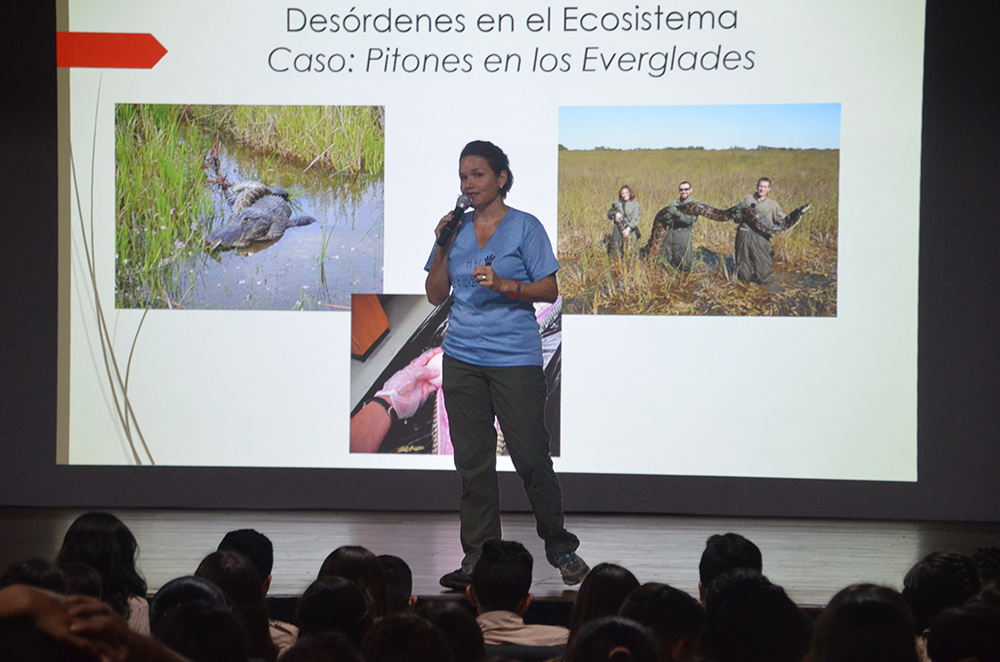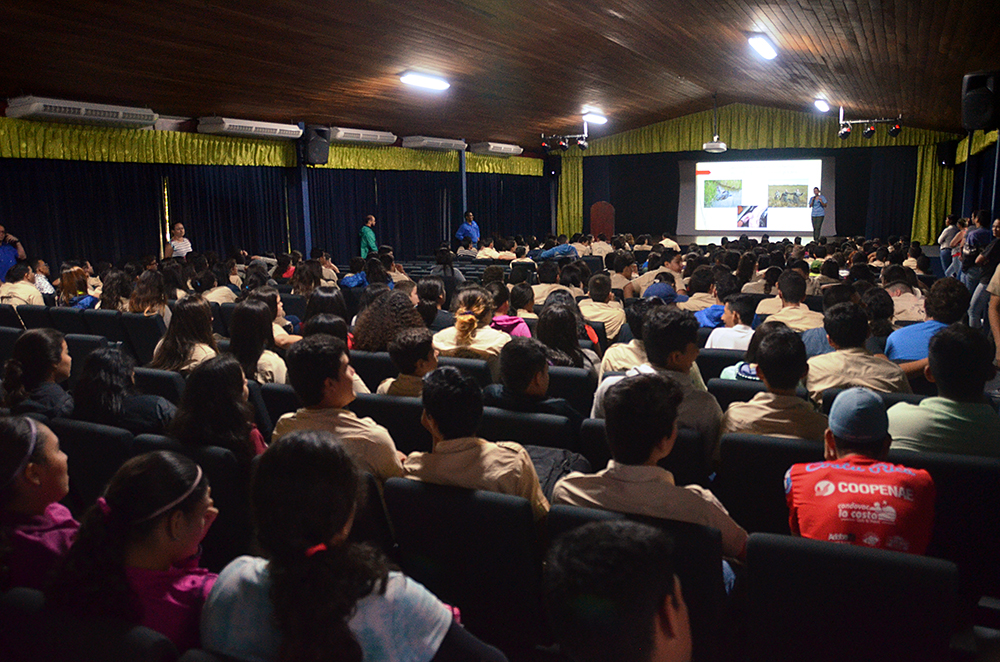On June 19, 2018, our collaborator and coordinator of volunteer programs, Adriana Aguilar, visited the Colegio Agropecuario de San Carlos, located in Santa Clara.
The talk consisted of the importance of wildlife in their natural habitat and the negative effects caused by both animals and ecosystems the removal of these from their natural habitat.
Wild animals in their natural habitat perform vital functions. Being part of the food chain, whether as prey or predator and disseminating seeds, allows the regeneration of the forest and a perfect balance.
The subtraction of animals from their natural habitat to be used as pets generates negative effects to the animals.
The stress of captivity by keeping them in small prisons, called cages; and inappropriate foods such as dough, bread with coffee and seeds that cause addiction to caffeine and fatty liver, are some of them.
Remember that the role that animals have in ecosystems will never be achieved or replaced by us.


Students from High School pay attention to educational speech from Proyecto Asis
______________________
‘‘Llévalos en tu corazón, pero déjalos en el bosque.’’
Este 19 de junio de 2018, nuestra colaboradora y encargada del departamento de coordinación de programas de voluntariado, Adriana Aguilar, visitó el Colegio Agropecuario de San Carlos, ubicado en Santa Clara.
La charla consistió en la importancia de la vida silvestre en su hábitat natural y los efectos negativos que causa tanto para los animales como para los ecosistema la sustracción de estos de su habitad natural.
Los animales silvestres en su habitad natural cumplen funciones vitales. Ser parte de la cadena alimenticia, ya sea como presa o depredador y diseminar semillas, permiten la regeneración de los bosque y un equilibrio perfecto en estos.
La sustracción de estos de su hábitat natural para ser utilizados como mascotas generan efectos negativos a los animales. El estrés del cautiverio al mantenerlos en pequeñas cárceles, llamadas jaulas; y alimentos inapropiados como masa, pan con café y semillas que generan adicción a la cafeína e hígado graso, son alguno de ellos.
Recordemos que el rol que tienen los animales en los ecosistemas jamás será logrado o reemplazado por nosotros.
